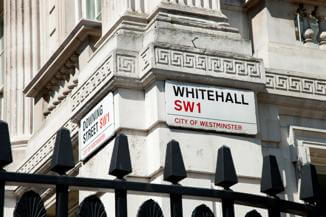Freedom of speech remains a hot topic of debate in the higher education sector culminating in the implementation (or not) of the Higher Education (Freedom of Speech) Act 2023.
Higher Education (Freedom of Speech) Act 2023 update
Interestingly, freedom of expression was also the basis in a recent decision regarding the disqualification of a charity trustee which was published on 6 February 2025.
“Capable of damaging public trust”
In Mond v The Charity Commission for England and Wales, the First-Tier Tribunal quashed an order of the Charity Commission disqualifying a charity trustee, Mr Mond, from holding office as a trustee over a period of 2.5 years.
The First-Tier Tribunal found that Mr. Mond's social media conduct was capable of damaging public trust and confidence in charities but was insufficient to establish unfitness to be a charity trustee.
“Not desirable in the public interest”
It ruled that making such an order was not desirable in the public interest and quashed the Charity Commission’s disqualification order.
The below extract from the decision makes for interesting reading for charities and their trustees.
The decision may spark conversations on recruitment and appointment panels for trustees across the various sectors. It also remains to be seen whether the Commission will be updating any of its guidance on freedom of speech and trustee behaviour.
“The tribunal finds that making the Order is not desirable in the public interest in order to protect public trust and confidence in charities generally. Mr Mond's conduct consists of two comments and two likes on social media made spontaneously over a seven-year period, which the majority of the tribunal find would be perceived as anti-Islam.
He apologised for the offence caused by his comment and resigned as a charity trustee when asked to do so.
If such conduct is found to be a basis for a disqualification order, and is applied more generally in the charity sector, it risks setting too high a bar for charity trustees and adversely affecting public trust and confidence in the charity sector by putting off individuals who may be effective trustees in pursuing some part of the full range of charitable objectives permitted by charity law.
Individuals with a history of social media use, who may now, or in the future, have the capability and integrity to be effective and responsible charity trustees, but who have a very limited history of spontaneous, low-profile comments on social media that might be perceived by the broader public to be offensive when viewed later and in aggregate should not always be deterred from taking up trustee roles.
In coming to this view, the tribunal is mindful that the public's own experience of social media may cause them to have less regard to isolated and spontaneous historic posts and 'likes' with the potential to be perceived as offensive or wrong.”
Key contact

Nathalie Jacoby-Danesh
Partner
nathalie.jacoby-danesh@brownejacobson.com
+44 (0)330 045 2833









































